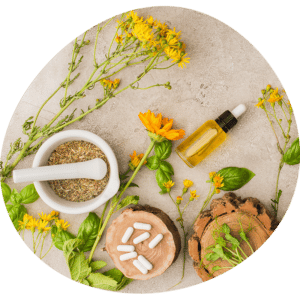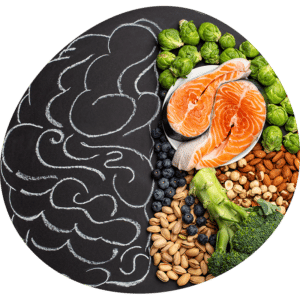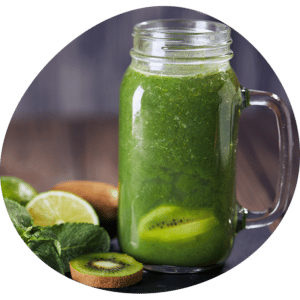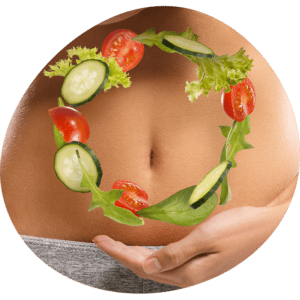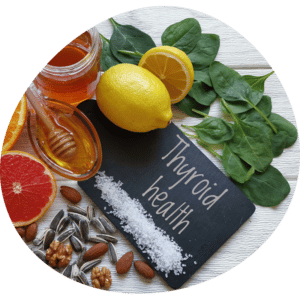Phytochemicals are various biologically active compounds found in plants. Phytochemicals are associated with the colour pigment of the plant and each phytochemical has been researched to have different health benefits.
Organically grown plants tend to have higher levels of these health-giving substances in them, due to the plants needing to fend for themselves, rather than rely on a pesticide to deter different predators, or artificial fertilizers to feed it. As a result of these stressors; the plant exerts an antioxidant defence mechanism, in the form of a phytochemical.
Research has linked diets low in phytochemicals to obesity.
More than half of the population is deficient in phytonutrients. Research shows that we require 9-15 serves of phytonutrient-rich foods, in order to experience maximum health benefits.
Red Foods:
Red-pigmented foods are rich in the phytochemicals lycopene, anthocyanins and astaxanthin. These phytochemicals are related to the following health benefits:
* Reduces cancer risk
* Reduces risk of cardiovascular disease
* Antioxidant
* Reduces risk of Alzheimer’s
* Controls blood pressure
* Reduces risks associated with diabetes
* Supports liver function
* Supports gut function
* Promotes healthy immune function
You can find these phytonutrients in:
* Tomato’s
* Watermelon
* Pink grapefruit
* Guava
* Raspberries
* Cherries
* Strawberries
* Cranberries
* Beetroot
* Red apple
* Red Cabbage
* Red onion
Orange & Yellow Foods:
Orange foods contain carotenoids such as beta-carotene and bioflavonoids. Betacarotene is safely converted into Vitamin A in the body and is associated with healthy vision, including night vision. Betacarotene is concentrated in the corpus luteum of the ovaries and may be involved in ovulation. Eating adequate amounts of orange-pigmented foods has a protective effect on your fertility.
The health benefits associated with orange and yellow-pigmented foods include:
* Antioxidant
* Healthy immunity
* Reduces cancer risk
* Reduces heart attack risk
* Good vision
* Maintains strong teeth and bones
* Healthy skin
Foods rich in these phytonutrients:
* Sweet potato
* Pumpkin
* Rockmelon
* Mango
* Apricot
* Peaches
* Oranges
* Grapefruit
* Lemon
* Tangerine
* Clementines
* Papaya
* Nectarines
* Pears
* Pineapple
* Yellow raisins
* Yellow capsicum
Blue, Purple & Indigo Foods:
Purple foods contain the phytochemicals anthocyanins and polyphenols. This phytonutrient tends to be the one least plentiful in the standard western diet. When available, choose purple varieties of vegetables over conventional ones – buy purple cabbage instead of green. The bioavailability of polyphenols is dependent on the microbiota in the gut, therefore tending to your microbiota by regularly taking a good probiotic and consuming foods rich in prebiotics which feed your good bacteria and promote biodiversity of the microbiota is very important if wishing to experience these health benefits:
* Reduce your cancer risk
* Antioxidant
* Reduce risk of memory decline & Alzheimers
* Controls blood pressure
* Reduces risks associated with diabetes
* Reduce your heart attack risk
* Anti-ageing
Blue/Purple foods include:
* Blueberries
* Figs
* Blackberries
* Purple grapes
* Black currants
* Elder berries
* Prunes
* Raisins
* Plums
* Eggplant
* Purple cauliflower
* Purple sweet potato
* Purple potato
* Purple cabbage
* Purple brussels sprouts
* Purple corn
* Purple carrots
* Cocoa
* Cinnamon
* Tea
Green & Yellow Foods:
Phytochemicals associated with green include lutein, zeaxanthin, indoles, chlorophyll, plant methylators, phytosterols, phytoestrogens and nitrates. Health benefits include:
* Healthy vision
* Reduces risk of cataracts or macular degeneration
* Reduces your cancer risk
* Reduce tumour growth in cancer patients
* Antioxidant
* Methylation
* Cell growth
* Reduces cholesterol
* Anti-inflammatory
Tips for getting more phytonutrients in your diet:
* Include a big salad with your lunch every day
* Serve vegetables every night with dinner
* Have 2 vegetarian days every week
* Drink green smoothies every day
* Consume small amounts of dark chocolate
* Drink tea – green teas benefits are seen by consuming just 2 cups per day
* Have cut fruit and veggies available to snack on during the day
* Make guacamole and eat it with veggie sticks as a snack
* Eat a handful of nuts and seeds every day
For more healthy digestion and gut information, please contact me!
Share this Blog
If you enjoyed this article share it across your socials


